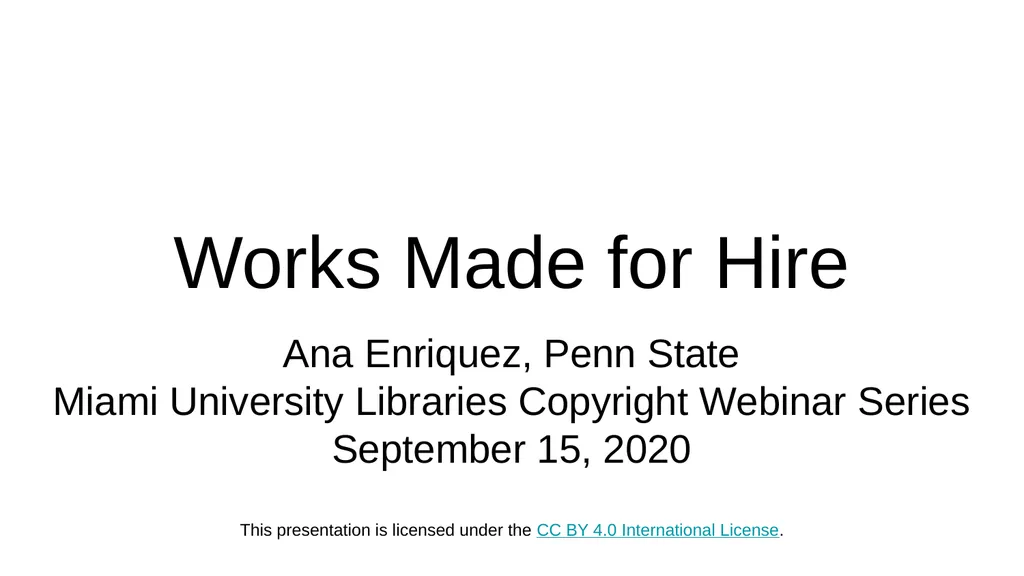
Author : sherrill-nordquist | Published Date : 2025-08-04
Description: Works Made for Hire Ana Enriquez, Penn State Miami University Libraries Copyright Webinar Series September 15, 2020 This presentation is licensed under the CC BY 4.0 International License. Outline U.S. Law Prior to 1978 Current U.S. LawDownload Presentation The PPT/PDF document "" is the property of its rightful owner. Permission is granted to download and print the materials on this website for personal, non-commercial use only, and to display it on your personal computer provided you do not modify the materials and that you retain all copyright notices contained in the materials. By downloading content from our website, you accept the terms of this agreement.
Here is the link to download the presentation.
"Works Made for Hire Ana Enriquez, Penn State Miami"The content belongs to its owner. You may download and print it for personal use, without modification, and keep all copyright notices. By downloading, you agree to these terms.













